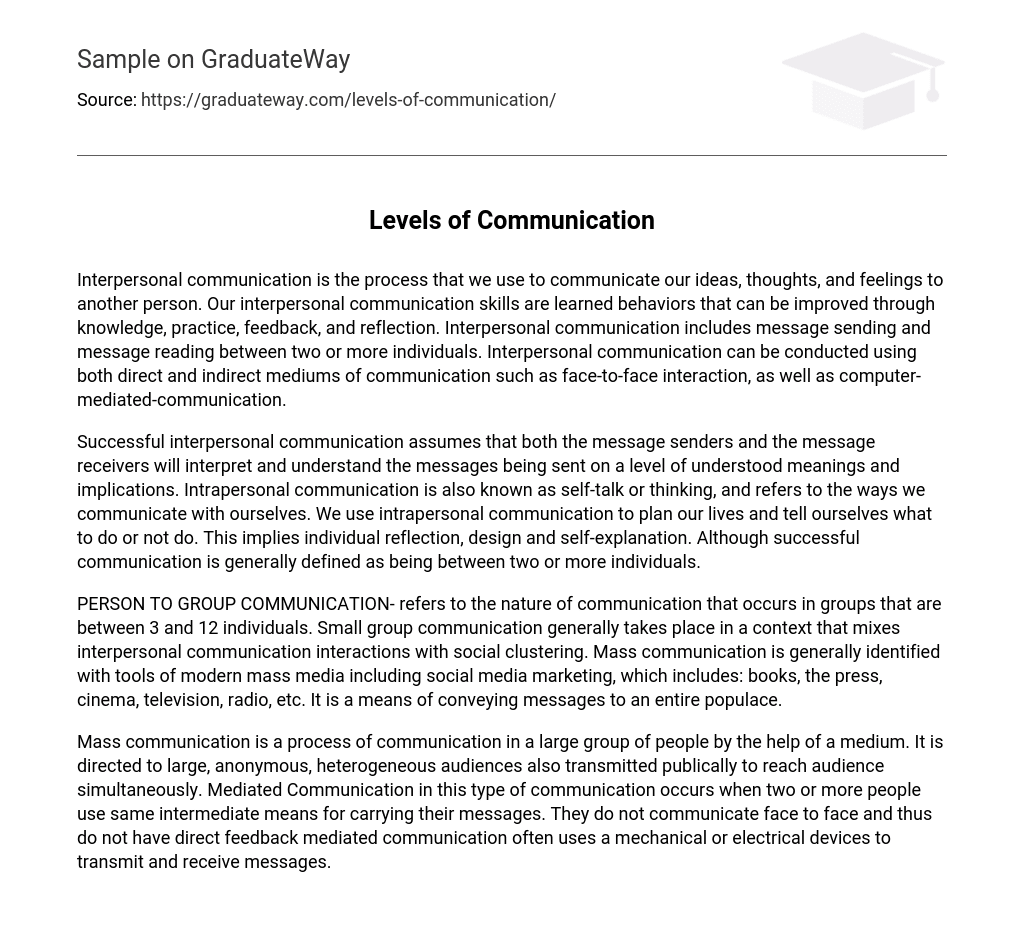Interpersonal communication involves sharing thoughts, ideas, and emotions with another person. To improve these skills, one can gain knowledge, practice, receive feedback, and reflect on their own actions. This communication occurs between two or more individuals through methods like face-to-face interaction or computer-mediated communication.
Effective communication relies on both interpersonal and intrapersonal skills. Interpersonal communication is the exchange and understanding of messages between individuals, while intrapersonal communication involves internal dialogue and self-reflection. Intrapersonal communication aids in self-guidance and goal-setting. In summary, successful communication involves comprehending and interpreting messages at different levels of meaning and implication, whether it occurs between individuals or within oneself.
PERSON TO GROUP COMMUNICATION refers to interactions among groups of 3 to 12 people, involving both interpersonal interactions and social clustering. In contrast, MASS COMMUNICATION utilizes various modern mass media tools such as social media marketing, books, the press, cinema, television, and radio. The main goal of mass communication is to transmit messages to a large audience.
Mass communication is the act of transmitting messages publicly to a wide and varied audience through a medium. On the other hand, mediated communication refers to when multiple individuals use an intermediate means to convey their messages. This form of communication does not involve face-to-face interaction or immediate feedback. Instead, it relies on mechanical or electrical devices for message transmission and reception.





